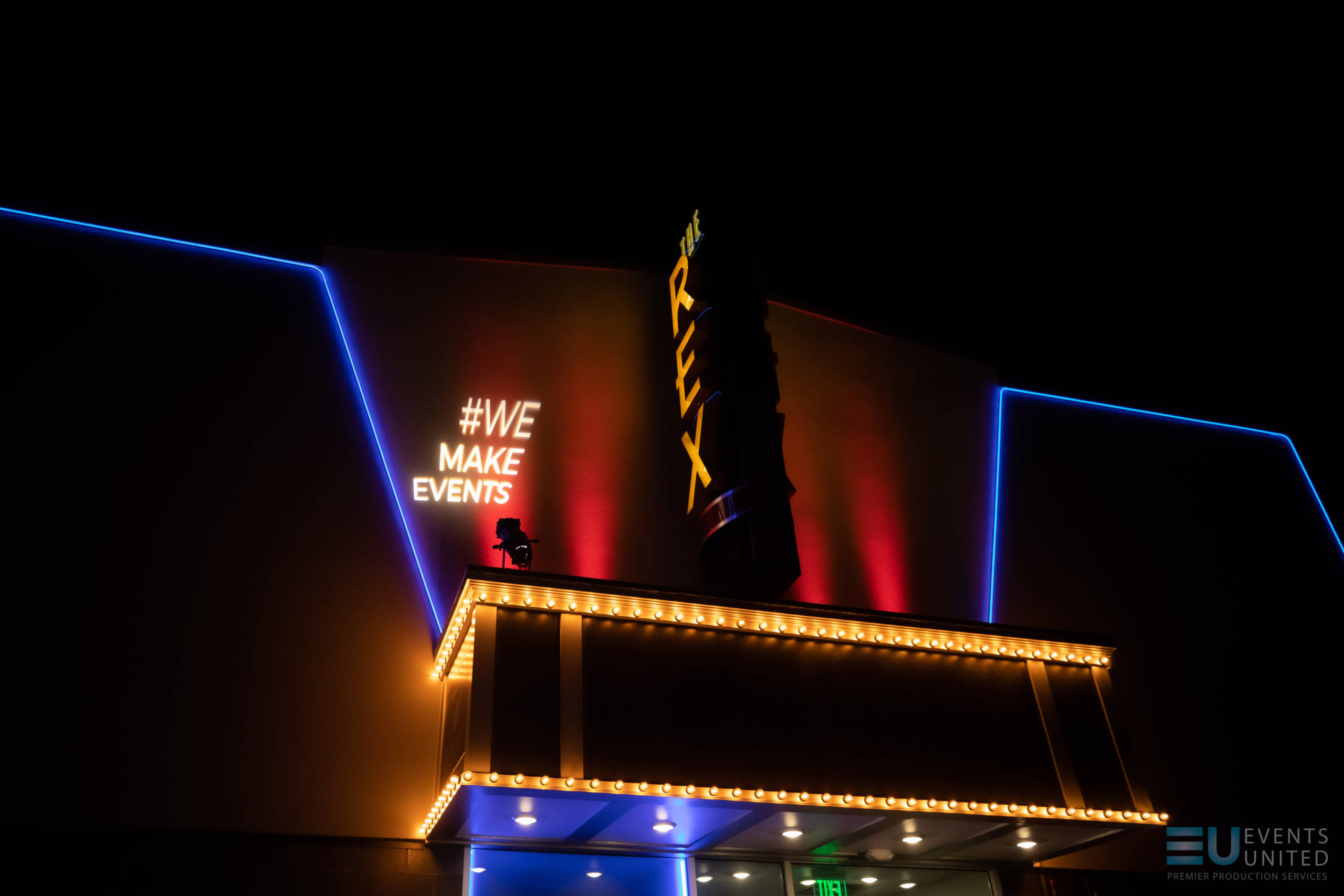
MANCHESTER, NH – It’s a clear-skied, cool-breezed September first evening and I’m walking up the familiar steps of the Fisher Cat’s Stadium. There is no bustle of footsteps up and down, no scent of fried foods or hot dogs in the air, no anticipatory music, or laughter, or cracking of bats.
The steps are empty, save for a spotlight placed at the top.
It’s only me, the soft beat of my footsteps, and the faint glow of red rising up to meet the purple-hued twilit sky.
This is a red alert.
It is part of the #wemakeevents movement that has been sweeping across the world, highlighting the impact of the COVID-19 pandemic on the live event industry.
Jim Flavin of the New Hampshire Fisher Cats spoke with me about the impact that the pandemic has had on their organization, but also, how it’s vital to stand united with fellow entertainment production companies and live venues.
“Yes, people miss going to shows and going to games, but the loss to small businesses is really what we’re highlighting.”
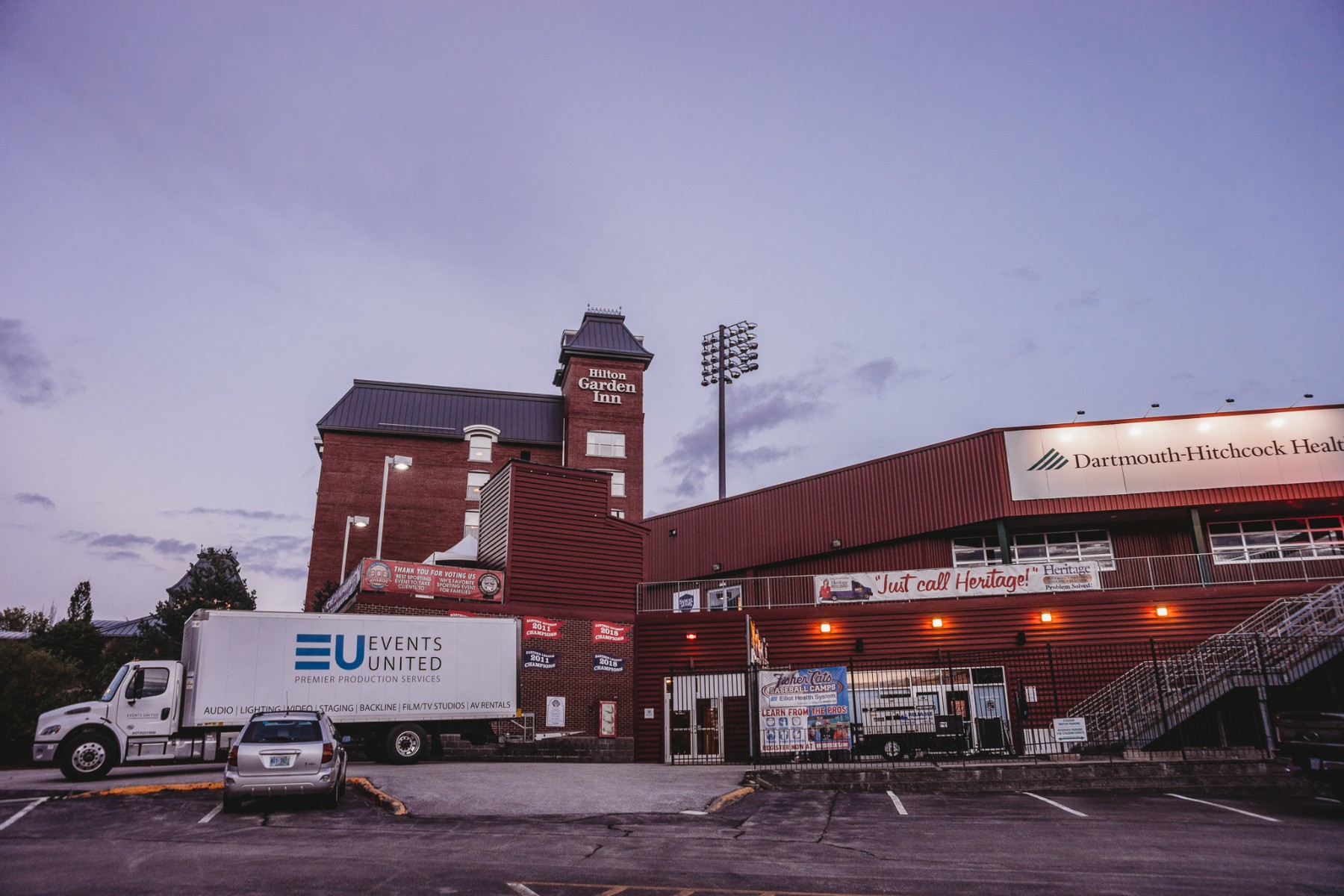
The Fisher Cats alone employ thirty-plus employees, many of whom have been furloughed throughout this season, in addition to forty-plus interns, the 100-plus gameday staff, and the 150 food and beverage vendors – not to mention the buses and transportation companies, the hotels – all of whom are impacted by the shutting down of minor league baseball games – the ripple effect of this alone is astounding. Add to that the impact this has on the restaurant industry in our community, and you have a crisis.
What happens when entertainment venues aren’t able to bring in people for shows and games? What happens to your city when there are fewer people being drawn in to see shows and dine in your restaurants? Fewer people means less income for small businesses, which means fewer job opportunities, which can all lead to local businesses closing their doors permanently and unemployment rates rising.
This is an ecosystem, this is our community, in peril.
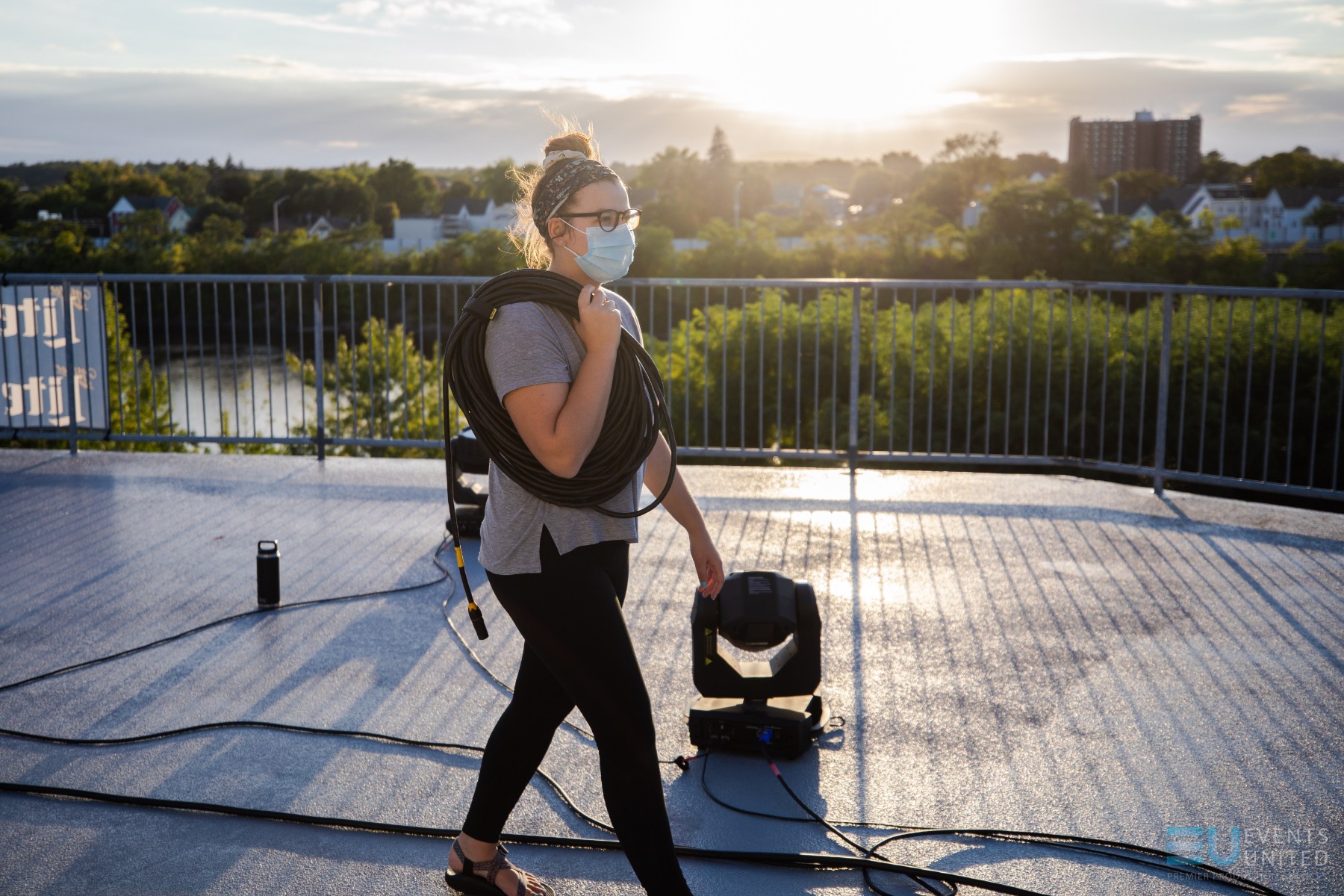
“Even worse,” Jim tells me, “is the human elements that have been impacted.” In their 15 years here in Manchester, the Fisher Cats have raised over six million dollars for those in our community. Their website highlights just some of their charitable efforts, from reading challenges that encourage our youth, to 5Ks that help sustain their fundraising, everything has been hit.
At the top of the steps, there is a row of spotlights shining to the sky. I meet Tim Messina of Events United, whose crew has done the work of lighting up the stadium for #wemakeevents. His company, in conjunction with Studio Lab, has been pivoting hard since March. While other event production companies have been severely impacted by the loss of revenue and business, Events United has been fortunate enough to have their studio space in Derry to produce live streaming events, including their internationally successful Dropkick Murphy’s production on St. Patrick’s Day.
Their in-studio streaming events have been so well received that many of the 60-plus clients they’ve served since March have said that they’re never going back to how it was before.
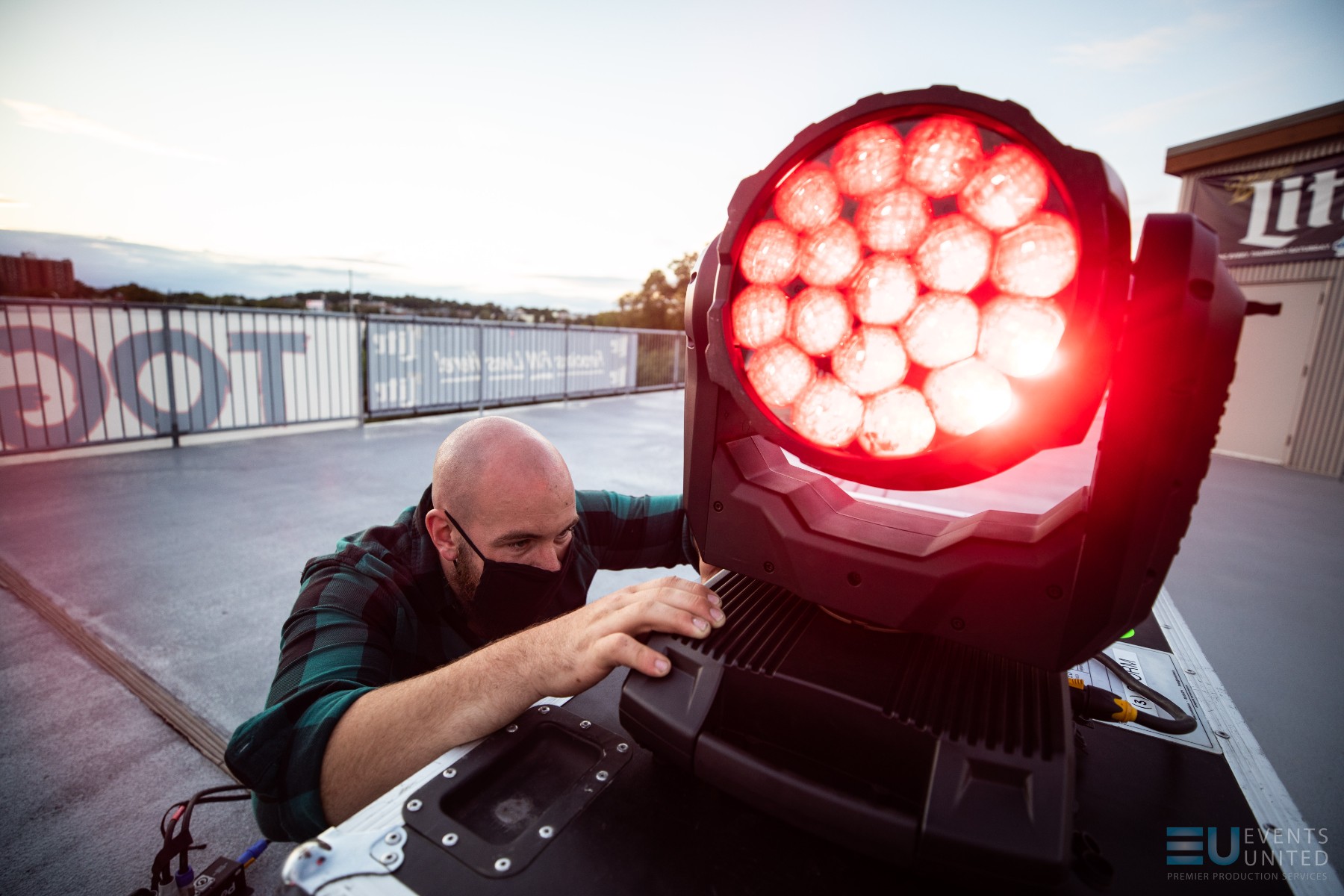
Even still, it’s been a year of loss and financial upheaval. Events United suffered the disappearance of nearly their entire 2020 schedule and they continue to see cancellations through February of 2021. The phone calls started in March and in the thick of it, there were times with six or seven cancellations a day. For a company used to overseeing the production of 150 events a year, this was a grinding full-stop just at the start of what would normally be their busy season.
And Events United is one of the fortunate ones. The entire live event industry is down 90-100 percent. Ninety to one-hundred percent. “It is estimated that 96 percent, or as many as 12 million people in the live events industry, are currently unemployed, furloughed, or have lost up to 90 percent of their income,” according to #wemakeevents organizers in the Denver Post.
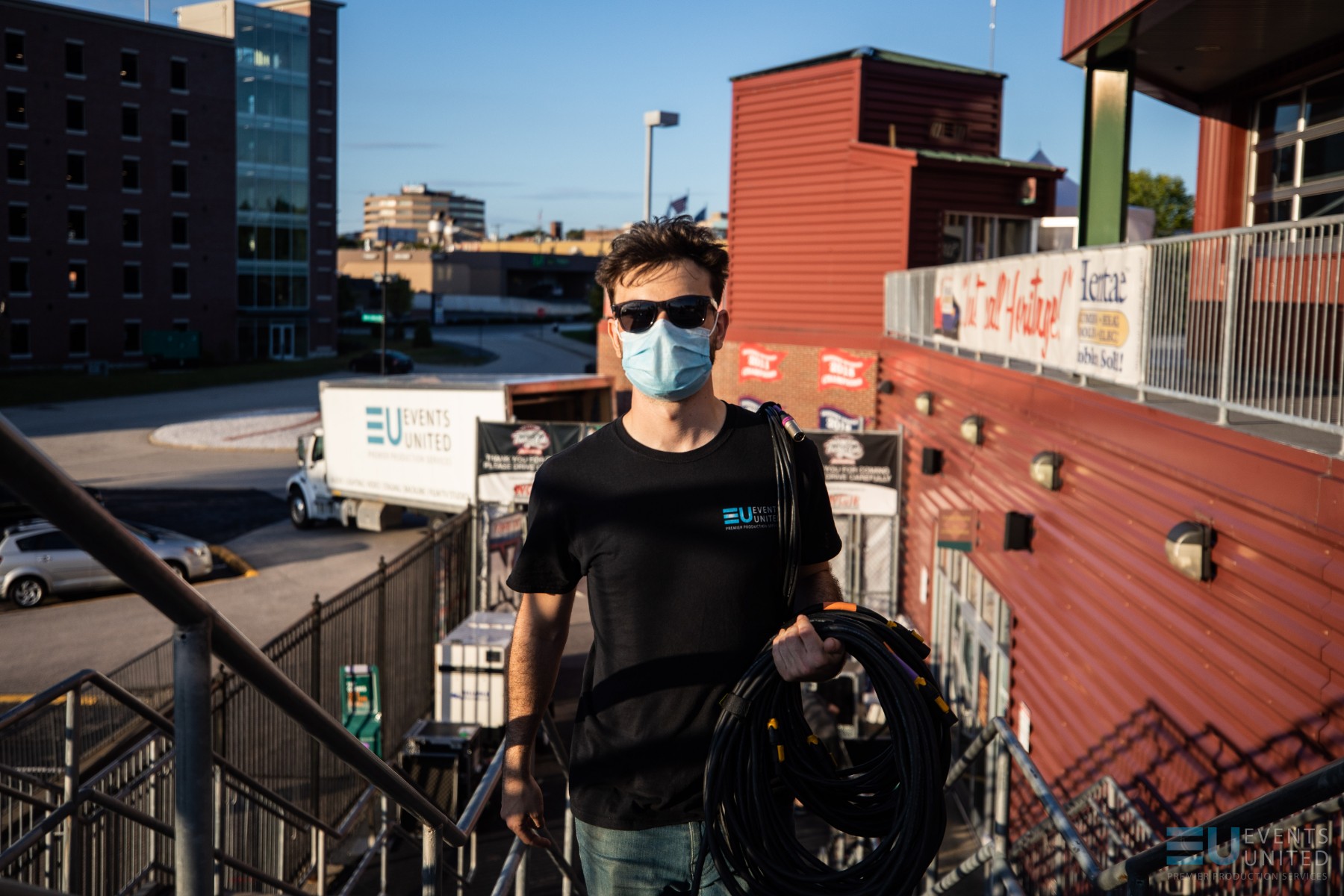
Many in the production end of the industry don’t have the luxury of studio space or equipment for delivering streaming content services. They’ve lost employees throughout the pandemic and there isn’t a clear end in sight.
Tim looks out over the red-tinted empty field as we talk, “the hardest part is that we don’t know what’s going to happen over the next year. We’re in limbo.”
It’s a free fall and one that impacts so much more than the entertainment industry.
Mike Ramshaw’s two words for the year have been Adapt and Adjust. That’s exactly what he’s been doing as the president of the Fisher Cats, working to maintain relevancy in Manchester in a time where baseball isn’t happening. “We want to be here, and in the long run, we want to be able to be there for the community that’s been there for us.”

In an effort to do just that, this summer, the Fisher Cats Stadium has hosted socially distanced graduations and concerts, when possible. Crowds of 2,000 people dispersed and socially distanced throughout the field and in the stands have been able to safely come together to watch concerts and fireworks. While in the year 2020, 2,000 people may sound like an enormous gathering, it’s truly not, when one considers that the stands of the stadium alone are able to hold 7,000 people in non-COVID times.
Moving events outdoors has been a pivot that Tim and his crew have been able to work with as well. Still, even in the hopefulness of pivoting to what can work, there have been disappointing realities. Stage set-ups designed for 40,000 in an outdoor airport venue, socially distanced, can only hold 1,200. The monetary loss alone makes it not viable for production companies, like Events United. With all of the stagehands, audio engineers, lighting designers, and other staff needed to bring such a show to life, they wouldn’t even break even.
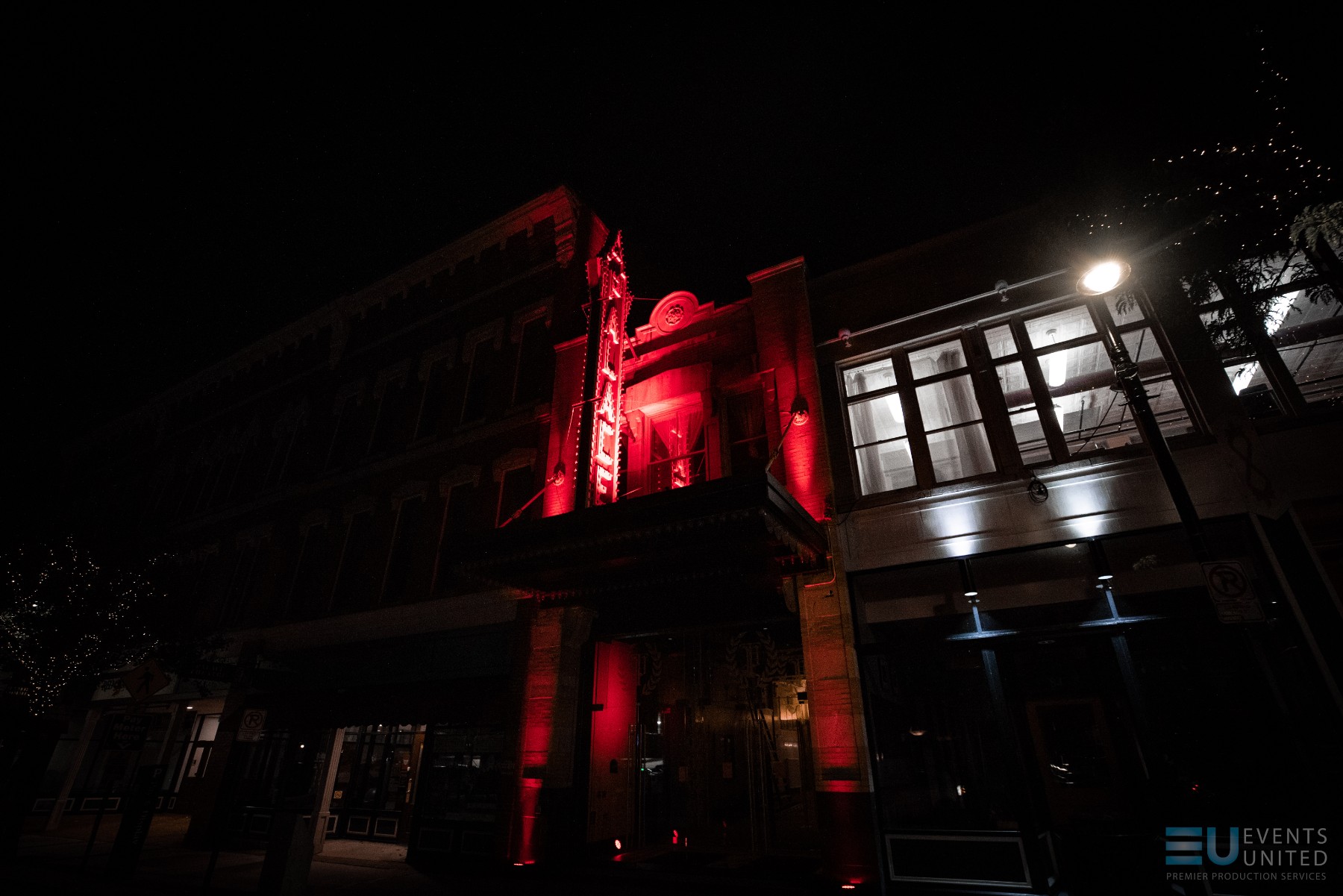
Pivoting becomes even harder when you consider social distance protocols and the impending New England winter.
As Tim said, we’re in limbo. And it’s only going to get harder for those in the event industry as the temperatures drop.
This is why #wemakeevents matters. This is why Tim and his team spent their day rigging up spotlights and pointing them to the skies above Manchester.
The #wemakeevents movement isn’t advocating for an end to social distancing or to put anyone in an unsafe situation. Ramshaw stressed that even pre-COVID, the safety of their guests has always been the number one priority, and it will continue to be.

What #wemakeevents would like is to see aid for an industry many love, an industry that serves more than to just entertain, but to support our communities in ways that most will never fully understand.
A Facebook memory popped up in my newsfeed the other day, it was of my children and I just down below, sitting in these very stadium seats. I remember it as a hard day, a day with a disappointing diagnosis and a sense of heaviness as the end of summer was approaching, but also, brighter than that, are the memories of the sense of wonder on my children’s faces, their laughter, the contagious way it bubbled over to me. We stayed after the crowds had thinned and watched the fireworks, the brilliant lights scattering over all of our heads and falling down to the grass below.
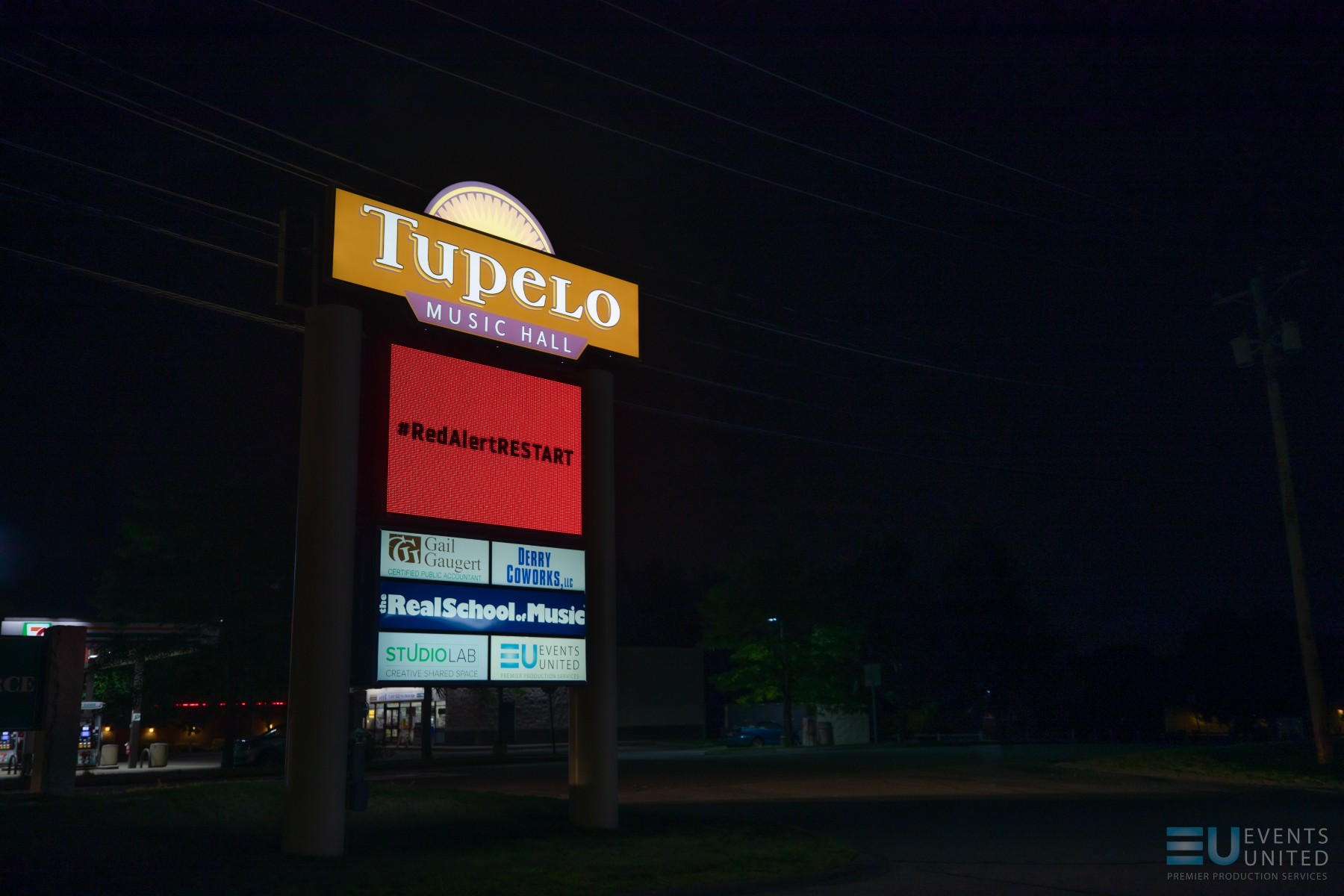
How much different the world is now – in a year without communities gathering together to share an experience, no shuffling together in crowds, bumping elbows with strangers, cheering on home runs, or singing along at the tops of our lungs to our favorite artists. 2020 has meant a loss for all of us.
But #wemakeevents isn’t even about that. It isn’t about how much we miss that sense of normalcy, of being able to come together in large crowds and enjoy a show.

In these red lights shining on event venues like the Palace, the Rex, the SNHU arena, and from the spotlights lining on the ground here at Fisher Cat stadium, #wemakeevents is sending a red alert to Congress, to our lawmakers, to the people who can provide aid to an industry that has been cut off at the knees.
Sitting in the quiet stadium as the night closes in and the red glow grows stronger, listening to Tim talk about the impact this year has had and will continue to have on the event industry, it’s otherwise eerily quiet. Somehow, the unsettling quiet, the stillness, only makes it abundantly more clear how necessary the #wemakeevents is.
For more information about the #wemakeevents movement, visit Plasa







